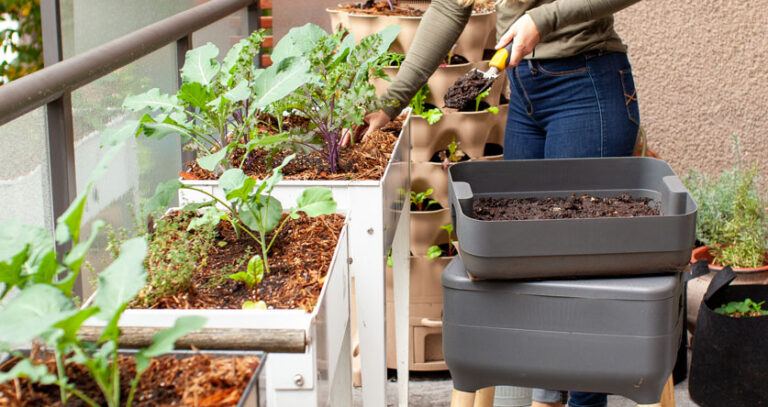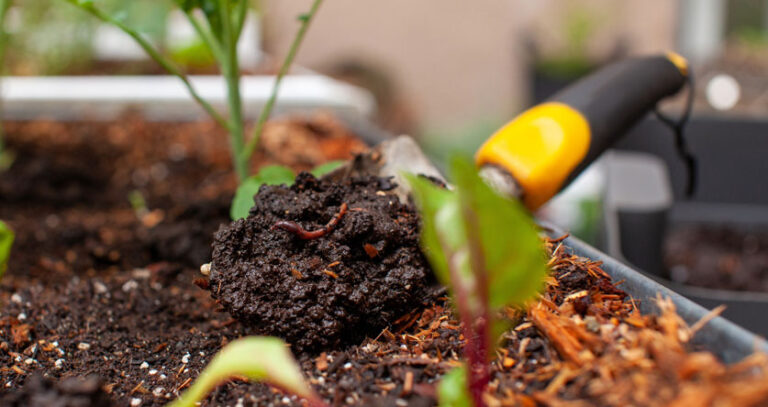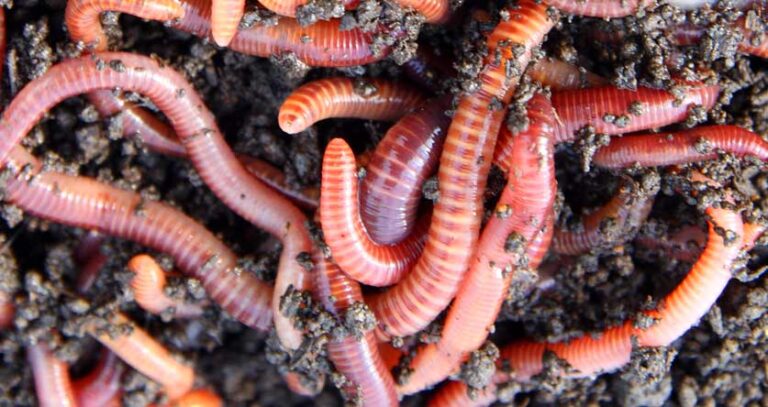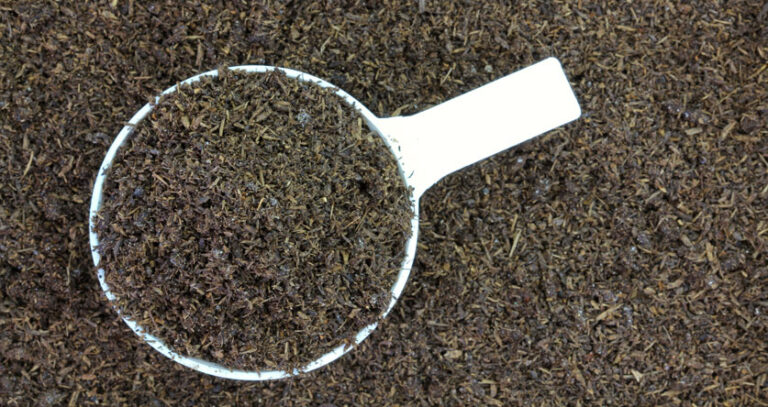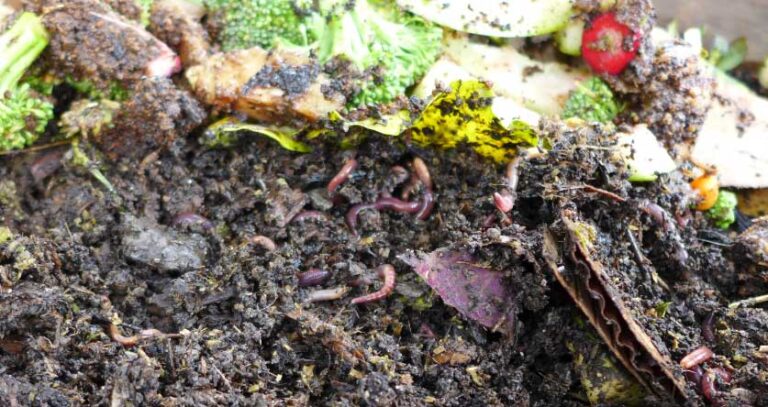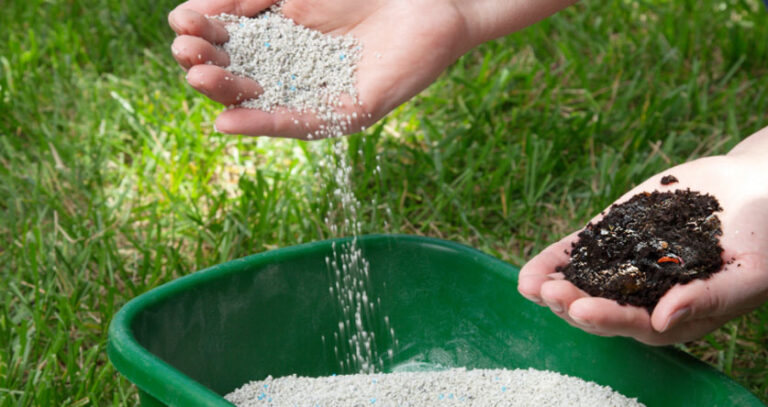What Do Worm Castings Do For Plants? (Facts Unearthed!)
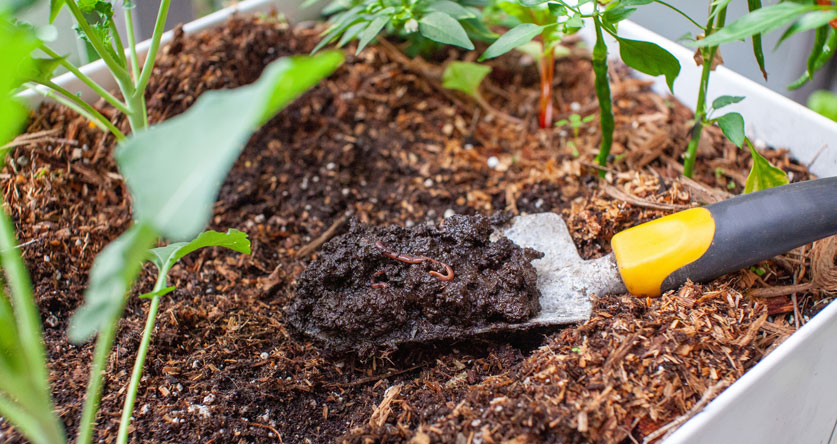
Worm castings are rapidly gaining popularity as an organic soil amendment, and for a good reason. It’s considered a superfood for plants! It offers a range of benefits for plants because it contains a unique combination of micronutrients and microorganisms.
You can buy worm castings from almost any garden center, nursery (or even online). Still, you can also easily make them yourself. Establishing a worm farm is one of the best things you can do for the soil and plants in your garden.
What Do Worm Castings Actually Do For Plants?
Worm castings slowly release nutrients into the soil for plants to absorb. Unlike certain fertilizers and compost, worm casting cannot burn plants. Instead, they improve soil quality in many ways by increasing fertility, aeration, moisture absorption. They also reduce soil crusting, compaction, and erosion.
Note: worm castings are also commonly known as “vermicompost.” Strictly speaking, these are not the same thing. Pure worm castings are “worm poop.” But vermicompost is a product harvested from worm bins and includes some partially decomposed organic waste and bedding. Nevertheless, commercial and homemade worm castings or vermicompost are basically the same and include a mixture of organic waste and castings.
- They help plants grow more healthily and abundantly by providing them with essential nutrients in a form that plants can quickly and easily absorb.
- Worm castings increase plants’ resilience to pests and diseases.
- They increase soil organic matter, as well as living microbes, which have symbiotic relationships with plants.
- Worm castings help plants better tolerate stress during times of drought and extreme heat.
- They increase the amount of water that soil can absorb and retain.
- Worm castings increase soil aeration and drainage.
These are the significant reasons why castings are considered helpful for your garden. But are there any restrictions to its use?
Are Worm Castings Good For All Plants?
There isn’t a plant on earth that would not benefit from worm castings. Worm castings can and should be used for all plants at any stage of their life.
Worm castings can be used for starting seedlings. They help to give young plants the best possible start in life.
Worm castings can be used for indoor houseplants growing in pots, as well as for outdoor plants. They have a beneficial effect on annual and perennial plants alike.
Vegetables, herbs, flowers, and fruit trees all benefit from using worm castings.
So what’s the secret to this wonder supplement? How does it contribute to healthier-looking plants and better-tasting vegetables?
Why Are Worm Castings Good For Plants
Worm castings are good for plants because they contain various nutrients that plants need – potassium, phosphorus, nitrogen, iron, calcium, and sulfur. These nutrients help plants to grow leaves, stems, roots, flowers, and fruits.
Vermicompost also contains humic acid. Humic acid is a complex molecule that binds to the roots of plants. It helps them take up water and nutrients. Research has shown that humic acid significantly increases plants’ yields.
Worm compost is also rich in microorganisms. As organic matter passes through composting worms’ digestive tract, it is enriched with millions of microbes. The only source of these microorganisms is the worms’ gut!
The plants do not absorb the microbes themselves but their metabolic wastes. As the microbes digest other microbes and organic matter, they produce micronutrients that plants can absorb.
Furthermore, worm castings bolster plants’ immunity against diseases and pests. Vigorous, healthy plants are far less susceptible to attacks by insects or pathogens.
But worm compost doesn’t only operate directly on plants. It also improves the quality and fertility of soil through a series of chemical, biological, and mechanical actions…
What Do Worm Castings Do For The Soil?
Most of the soil on earth has been depleted of organic matter and nutrients. Degraded soils do not hold water as well as healthy soils and do not contain the things plants need to thrive.
Worm castings are excellent for improving soil health in several ways:
- They add carbon to the soil, significantly enhancing its fertility.
- They improve the structure of the soil – For example, clay soils are often too dense for plants’ roots. Adding worm castings helps to loosen the soil structure.
- Worm compost improves soil aeration. Plants need oxygen in their root zone, so well-aerated soil is essential for healthy plants.
- They increase the soil’s water-holding capacity. This means water remains in the soil for longer, so plants can gradually absorb the moisture.
- They reduce the risk of soil erosion. Well-aerated soils that do not dry out quickly are less likely to be eroded by wind or water.
- They reduce and prevent soil crusting. Soil crusting is a problem in dense soils that cannot retain a lot of water.
- Worm castings help to balance the soil pH because they are entirely neutral, with a pH of 7.0. They help to lower the pH of alkaline soils and increase the pH of acidic soils.
- Research suggests that worm castings can remove toxins and heavy metals from the ground.
Do I Need To Fertilize If I Use Worm Castings?
While they are a fantastic soil amendment, worm castings do not contain all the nutrients plants require. Therefore, they cannot be used as a substitute for fertilizer. Instead, they should complement the use of fertilizer.
For example, because worm castings do not contain enough nitrogen, you still need to fertilize plants with compost or organic liquid fertilizer – even if you use worm castings.
Are Worm Castings Better Than Compost?
Worm castings are better than compost in one key aspect, and that is nutrient bioavailability. Plants can absorb nutrients from worm castings more quickly and efficiently than traditional compost.
The main reason for this is that worm castings have already been digested. Composting worms eat organic matter, and as it passes through their digestive tracts, it is broken down into simpler organic and inorganic molecules.
When you add pre-digested worm castings to the soil, plants can immediately absorb the nutrients. This is because they are already in a form that plants can take in.
Compost, on the other hand, continues to break down after it is added to the soil. In addition, it takes time for the organic matter in compost to decompose naturally, so plants must wait for nutrients from compost to become available.
On the other hand, compost can be produced in much more significant quantities. The average compost bin will deliver a much larger amount of soil supplement than the average worm bin… Compost is still a beneficial soil amendment!
If you are keen to further understand how worm castings compare to compost, read this article (“Worm Castings Vs. Compost”).
Conclusion
Worm castings offer a wide range of benefits to plants by providing them with essential nutrients and beneficial microorganisms, as well as by improving soil quality. By increasing the soil’s moisture-holding capacity, aeration, and drainage, worm castings help to create the best possible growing conditions for your plants.


